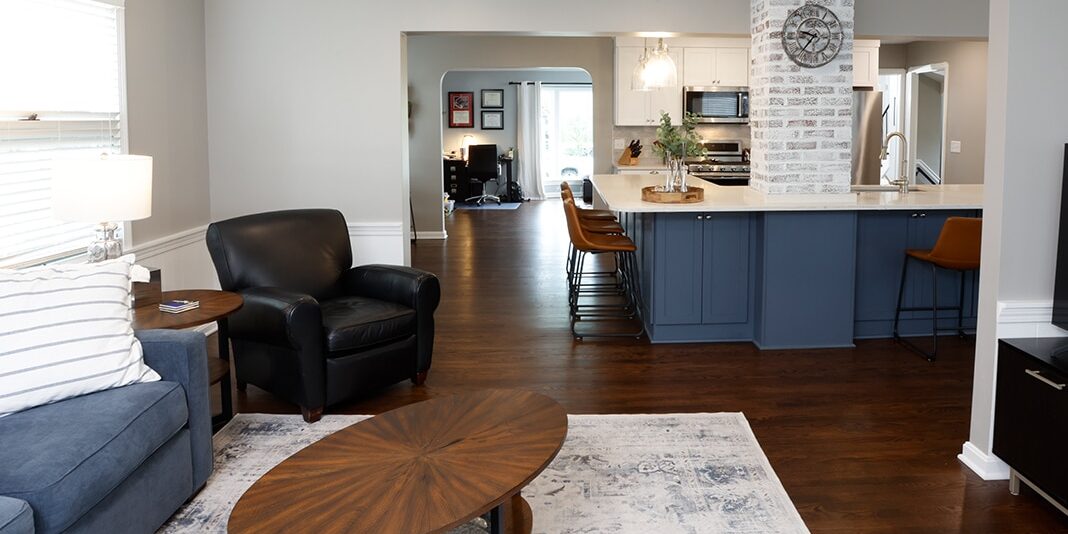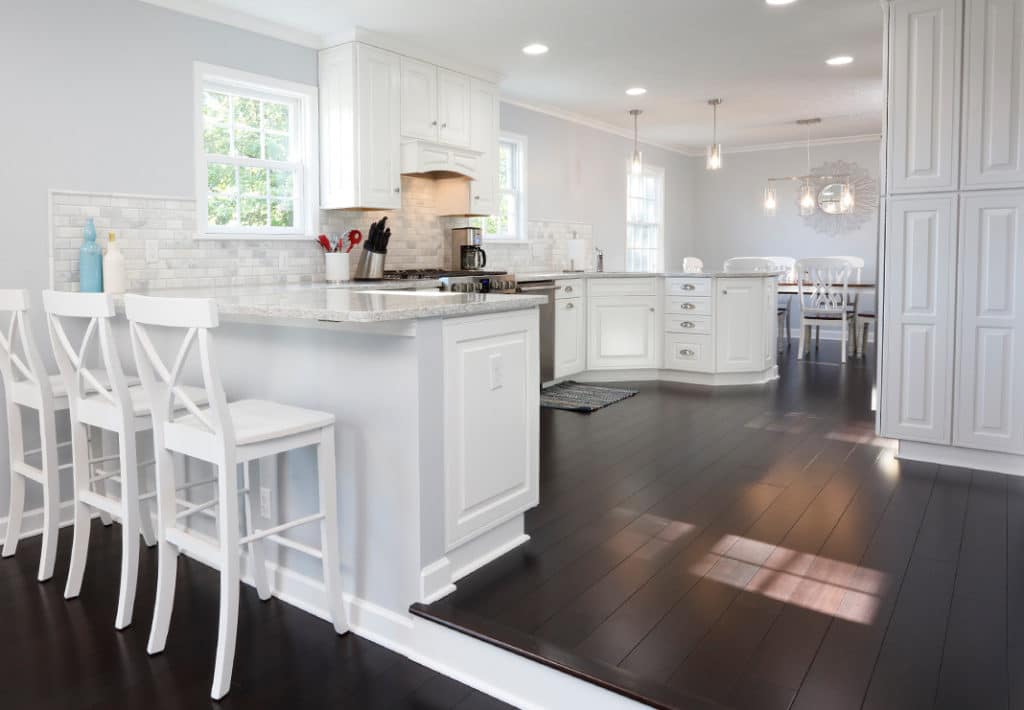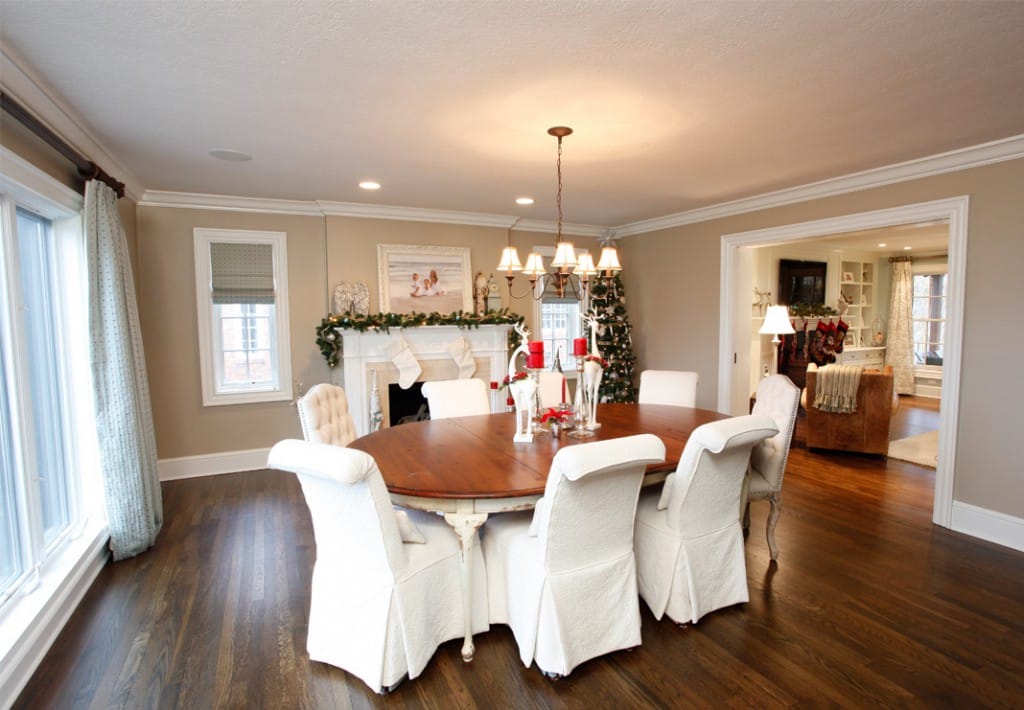When it comes to home flooring options, hardwood and engineered hardwood consistently rank among the most popular choices. Both increase home value and offer timeless beauty, elegance and undeniable charm. But with so much information out there, deciding between solid hardwood and engineered hardwood can feel overwhelming.
This comprehensive guide breaks down the key differences between these two popular flooring materials to empower you to make the ideal selection for your home remodeling project.
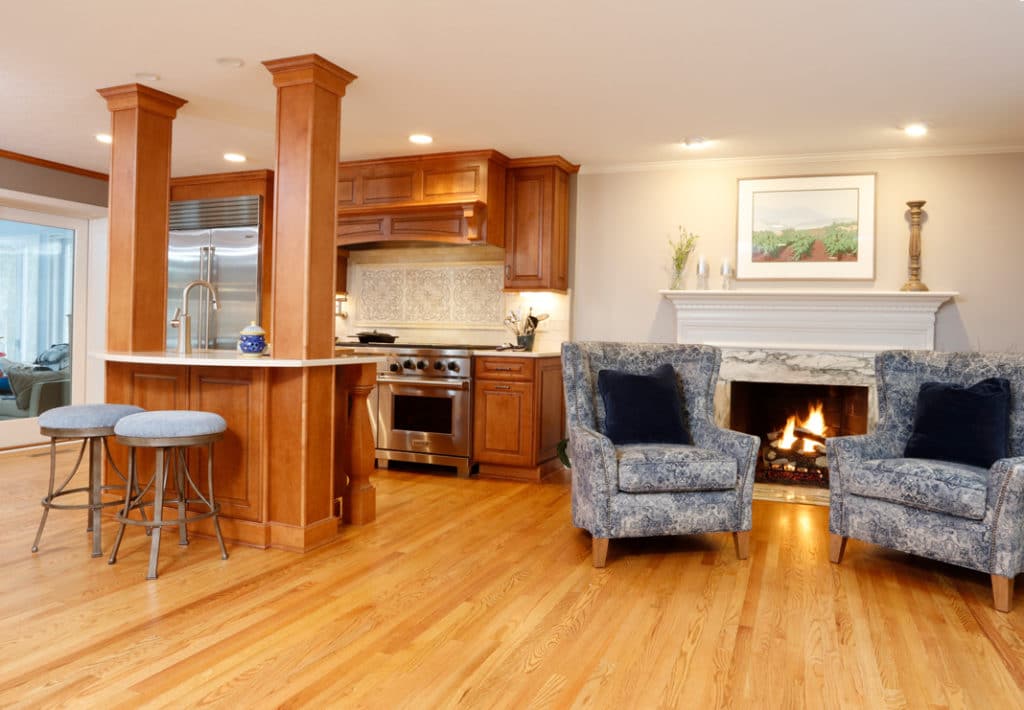
Understanding the Basics: The Difference Between Engineered Hardwood and Finished Hardwood
Solid hardwood flooring is exactly what it sounds like: planks of solid wood meticulously crafted from a variety of tree species like oak, maple and cherry. Engineered hardwood, on the other hand, boasts a layered construction. Typically, it features a core of high-quality plywood topped with a real hardwood veneer. This veneer replicates the look and feel of solid hardwood but at a more affordable price point.
Visual Appeal
Hardwood floors are a classic, timeless choice for the home. They’re also the chameleon of flooring products, catering to almost any design style. Both solid and engineered hardwood flooring boast a wide range of styles, colors and finishes. Whether you crave the rich, warm tones of mahogany or the light, airy, modern vibe of white oak, you’re sure to find an option that complements your unique design vision.
Durability and Maintenance
Solid hardwood flooring reigns supreme in terms of longevity. A solid hardwood floor can grace your home for a century or more with proper care and maintenance. The beauty of solid hardwood lies in its ability to be refinished multiple times throughout its lifespan. Engineered hardwood offers a respectable lifespan of 20-30 years, but the thickness of the hardwood wear layer limits its refinishing capabilities.
When it comes to maintenance, both hardwood flooring materials require regular cleaning. Solid hardwood might have a slight edge here due to its solid construction. Engineered hardwood, however, can be more resistant to moisture variations, making it a suitable choice for areas with higher humidity.
Cost Considerations
Solid hardwood flooring typically carries a higher initial investment than engineered hardwood. However, its extended lifespan and superior refinishing potential can translate to long-term savings. Engineered hardwood offers a more budget-friendly upfront cost, but keep in mind that replacing it will likely be necessary sooner than solid hardwood.
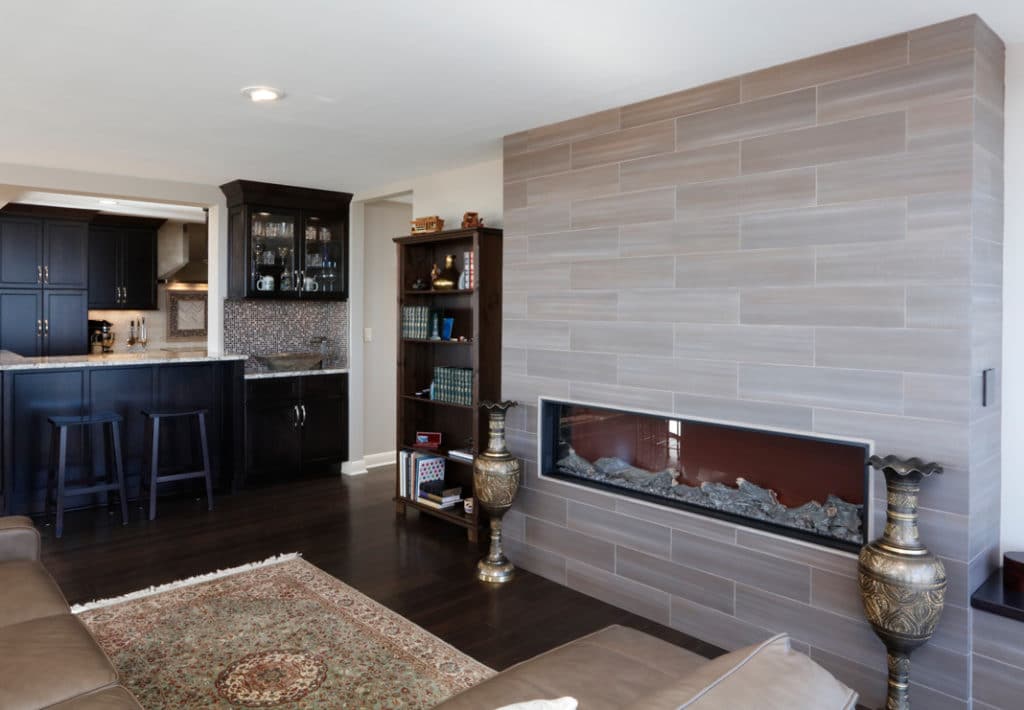
Environmental Impact
Both solid and engineered hardwood flooring can be environmentally friendly choices. Engineered hardwood uses less solid wood by combining a thin veneer with a plywood core. Look for options that utilize recycled materials in the core layer to further reduce environmental impact.
Solid hardwood floors can last generations if properly maintained, reducing the need for replacement and minimizing waste. When selecting hardwood flooring, look for options certified by organizations like the Forest Stewardship Council (FSC), which promotes responsible forest management.
While both solid and engineered hardwood are eco-friendly options, bamboo flooring presents another attractive possibility. Bamboo is a grass—a fast-growing, renewable resource that matures much quicker than traditional hardwood trees. This rapid regeneration makes it a sustainable and eco-friendly selection for homeowners who want a beautiful floor with a minimal environmental footprint.
The Ideal Hardwood Choice for Your Project
Ultimately, the best flooring choice hinges on your specific needs and preferences. Here’s a quick guide to help you decide:
Solid Hardwood
Solid hardwood is the perfect selection for homeowners who prioritize durability, longevity and a timeless aesthetic. If budget is not a primary concern and you desire a floor that can be refinished to match changing trends, solid hardwood is an excellent choice.
Engineered Hardwood
Engineered hardwood is ideal for those seeking a beautiful hardwood look at a more affordable price point. Due to its enhanced moisture resistance, it is also an excellent choice for areas of the home where water is present or with higher humidity levels.
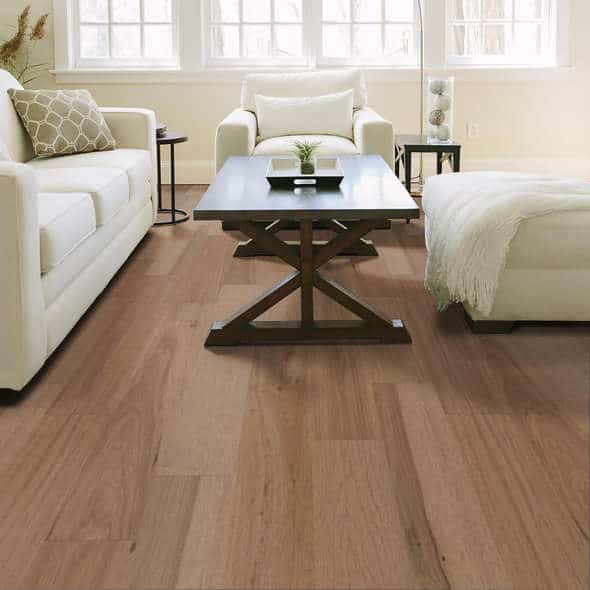

Beyond Aesthetics: The Value of Professional Hardwood Installation
Whether you choose solid or engineered hardwood, professional installation is essential. Proper subfloor preparation and installation techniques are crucial for maximizing the lifespan and beauty of your new hardwood floors and ensuring manufacturers’ warranties.
Dover’s team of experienced flooring specialists has the expertise to ensure a flawless installation, guaranteeing that your new floors will grace your home for years to come. Ready to shop and compare hardwood flooring options in NE Ohio? Visit the Dover Floor & Tile Center to discuss your home flooring project with our professional designers. We’ve got a fantastic selection to get you started!
The best is yet to come,
Beth Orr
